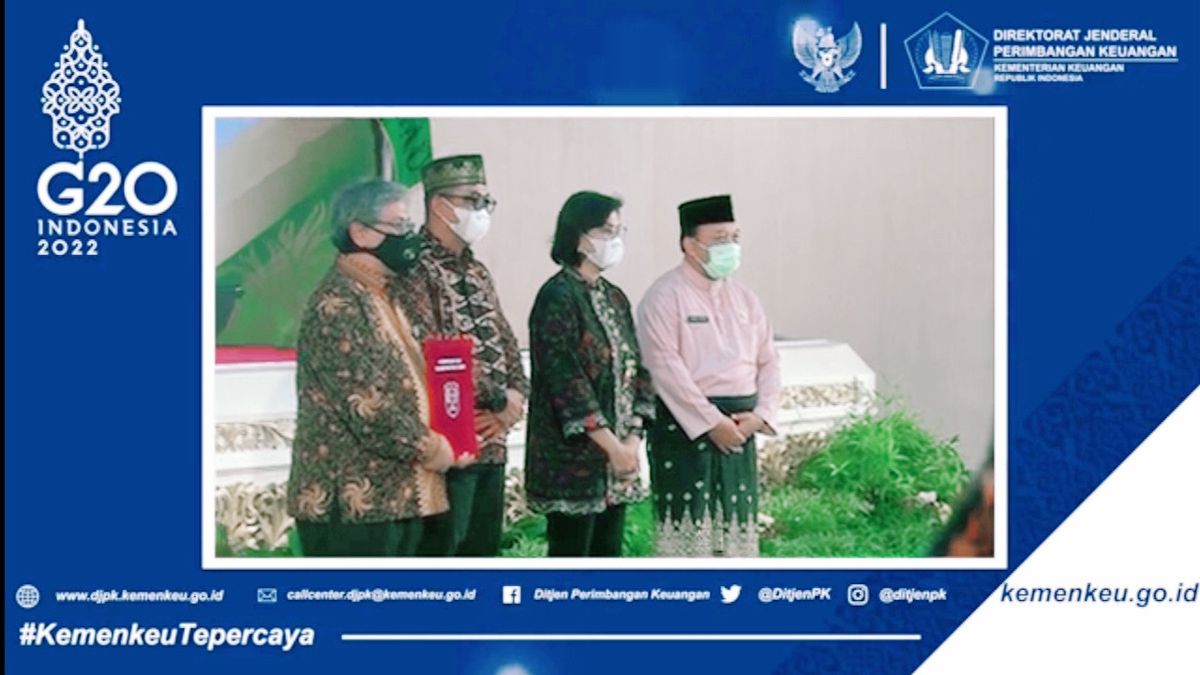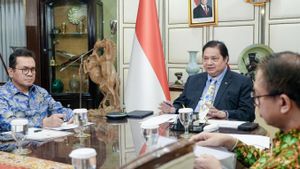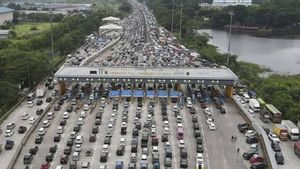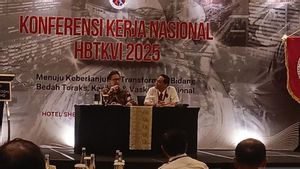JAKARTA - Minister of Finance (Menkeu) Sri Mulyani together with echelon I ranks held a working visit to Riau Province in order to socialize the implementation of the Law on Central and Regional Financial Relations (HKPD).
During the visit, the Minister of Finance revealed that the HKPD Law is a form of quality spending reform that is realized through efforts to strengthen fiscal decentralization by encouraging the allocation of national resources effectively and efficiently.
"The HKPD Law is expected to encourage transparency in the management of state finances that is accountable and fair in order to realize equitable distribution of welfare for the people who are just and prosperous," he said through an online channel, Friday, March 25.
According to the Minister of Finance, according to the third pillar of the HKPD Law, namely improving the quality of regional expenditures, regional expenditure management arrangements are made with a focus on spending, mandatory spending, controlling personnel spending, strengthening infrastructure spending, and performance-based SiLPA.
"We hope that with this HKPD, central-regional spending will be more harmonious and synchronized and implementation in the field will be more effective and integrated," he said.
Meanwhile, the focus of regional spending on basic public services is to achieve minimum service standards. For this reason, the treasurer also said that mandatory spending is solely aimed at accelerating the distribution of quality public services and welfare in the regions.
"There is mandatory spending, not the goal to not give confidence to the regions. But indeed this area aims to serve the community, especially in the field of health education," he asserted.
Furthermore, the Minister of Finance also stated that the control of personnel expenditure includes a limit on the amount of employee expenditures of a maximum of 30 percent of the APBD, excluding teacher allowances from TKD. Then, the transition period for adjusting the portion of personnel expenditure is five years, and flexibility in making adjustments after the transition.
"The HKPD Law also regulates the strengthening of infrastructure spending, namely through a limit on the amount of public service infrastructure spending at least 40 percent of the APBD," he said.
Finally, optimizing the use of non-earmarked SiLPA for regional expenditures based on the performance of regional public services.
“If the service performance is already high, it can be invested or the establishment of a regional endowment fund. However, if service performance is still low, it will be directed to spending on public service infrastructure," concluded Minister of Finance Sri Mulyani.
The English, Chinese, Japanese, Arabic, and French versions are automatically generated by the AI. So there may still be inaccuracies in translating, please always see Indonesian as our main language. (system supported by DigitalSiber.id)













